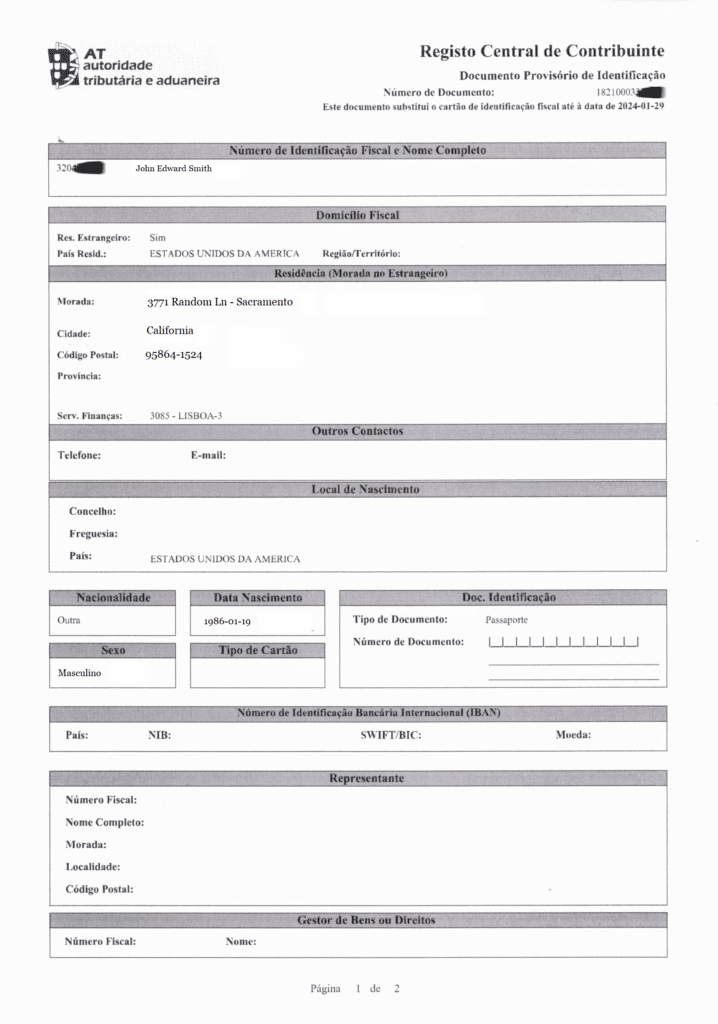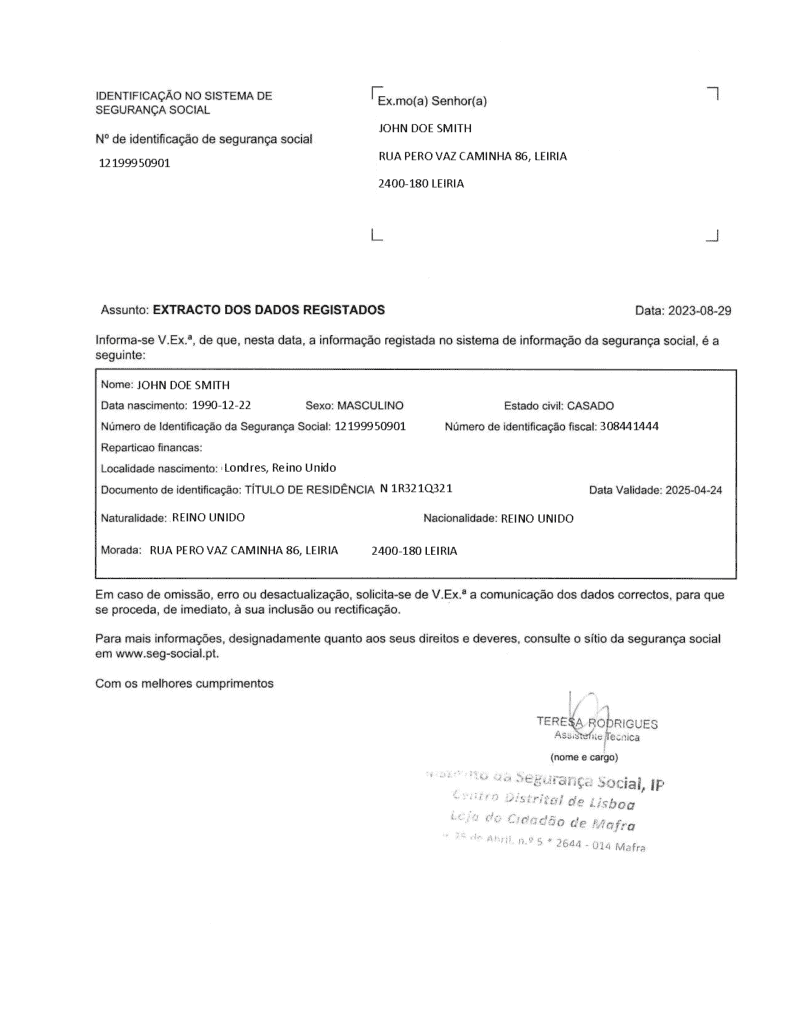New Portuguese Crypto Tax Law in 2023
With the wild ups and downs of cryptocurrencies like Bitcoin and Ethereum, it’s no wonder that crypto traders have taxes on their minds.
Portugal’s tax authorities have been stepping up their game, and even those who simply hold crypto need to ensure they’re playing by the rules.
Given the country’s approach to cryptocurrency, staying compliant might be easier than you think.
“Portugal has been quite progressive in regulating the crypto space,” says Diogo Vasconcelos, a tax consultant in Lisbon. “They’ve created a clear framework for those dealing with cryptocurrencies, which makes it simpler for everyone involved.”
While the anonymity (or at least semi-anonymity) of cryptocurrencies like Bitcoin has been a key selling point, Portugal’s authorities have made strides in keeping up with the rapidly-evolving market.
“Portuguese tax authorities are becoming more adept at tracking crypto transactions and ensuring compliance,” explains Vasconcelos. “It’s essential for those engaging in crypto activities to understand the tax implications and stay on the right side of the law.”
The good news is that Portugal generally treats cryptocurrencies similarly to other capital assets, like stocks and bonds.
The not-so-good news: This treatment can make it a bit tricky to use cryptocurrency for everyday transactions.
In this article, we’ll break down key things you need to know about cryptocurrency taxes in Portugal and how to stay compliant. Let’s dive in!
Breaking Down the Meaning of Cryptocurrencies

Understanding the definition of cryptocurrencies is crucial under Portugal’s updated tax regulations. The law provides a comprehensive overview that encompasses a variety of digital assets, including popular cryptocurrencies like Bitcoin and Ethereum.
In particular, cryptocurrencies are defined as “digital symbols of value or rights that can be digitally transferred or stored utilizing Distributed Ledger Technology (DLT) or similar technology.” This definition encompasses many of the cryptocurrencies that have gained significant traction in recent years.
However, the law specifically excludes non-fungible tokens (NFTs), which are unique digital assets representing collectibles or artwork, from its scope. This exclusion is aimed at distinguishing NFTs from other digital currencies due to their unique characteristics and use cases, such as digital art, collectibles, and virtual real estate.
This exemption could have important implications for investors and collectors in the NFT market who will not be subject to taxation under the new rules.
Breaking Down Income Categories from Cryptocurrencies
To understand the new tax framework in Portugal, it’s important to grasp the different categories of income that can be earned from cryptocurrencies:
Category G – Realization of Capital Gains from Trading

Under the revamped tax system, capital gains earned from cryptocurrency trading are categorized based on the holding period. If the assets are held for less than a year, a 28% tax rate applies to the gains. However, if the assets are held for over a year, the gains are entirely tax-free.
For instance, if an investor purchases Bitcoin and sells it within six months at a profit, the investor would have to pay a 28% tax on the capital gains. Conversely, if the investor holds the Bitcoin for over a year before selling, the gains would not be taxed.
If the exchange occurs between different cryptocurrencies, the transaction is not taxed immediately. Instead, the cost basis of the newly acquired crypto assets is determined by their market value at the time of the transaction.
Category B – Professional Activities, Including Crypto Mining and Validation
Earnings from crypto mining and validation are categorized as professional income and taxed like any other professional activity, subject to a maximum Personal Income Tax rate of 53%.
Individuals engaged in such activities can choose between organized accounting and simplified accounting methodologies, which will be discussed later in this article.
Category E – Capital Yields, Including Staking, Lending, and Providing Liquidity
Income generated from staking, lending, or providing liquidity through liquidity pools is taxed based on returns. If the returns are paid in fiat or other non-crypto assets, a 28% tax rate applies.
However, if the yield is paid in cryptocurrencies, it is taxed as capital gains only when sold, following the rules outlined under Category G.
Note that these income categories are not mutually exclusive, and an individual may earn income from multiple categories.
Accounting Options for Professional Activities

Professional activities involving cryptocurrencies, such as mining or trading, offer two accounting options:
Organized Accounting
Under this system, the taxpayer’s annual profit, derived from their Profit & Loss (P&L) statement, is taxed according to the standard personal income tax rates, up to 53%.
Simplified Accounting
This accounting method allows taxpayers to pay taxes based on their total turnover. Different coefficients are applied to each type of activity.
Categories A and B – Compensation and Professional Payments
Receiving cryptocurrencies as compensation for work or professional services is treated as income in kind and taxed under the standard tax rates. The cash equivalent of such payment is determined by the rules specified in Article 24 of the Personal Income Tax Code.
Taxation of Crypto Derivatives

Crypto derivatives, such as futures, options, and perpetual contracts, are increasingly popular in the cryptocurrency market. Portugal’s new tax law subjects derivative financial instruments to taxation, except for interest rate swaps.
According to the current Portuguese Personal Income Tax Code (Código do IRS), derivatives-related operations are taxed at a rate of 28%.
However, it is essential to note that the tax treatment of crypto derivatives is still a developing area, and investors are advised to seek professional advice on their tax obligations.
Additional Considerations

As we continue exploring the new tax regime for cryptocurrencies in Portugal, it’s essential to consider additional provisions that could impact investors and other stakeholders.
These include an exit tax provision that equates losing tax residency in Portugal with selling all owned crypto assets, potentially leading to legal disputes.
Additionally, the law only taxes cryptocurrency transactions when they are withdrawn in fiat currency, with the sale price presumed to be equivalent to the market value at the time of the transaction.
Individuals can offset taxes due on cryptocurrency gains with losses from other investments, which can be carried forward for up to five years. However, the law does not explicitly address the taxation of airdrops, leaving room for interpretation based on market value when converted into fiat currency.
These provisions complicate the tax reporting requirements for those involved in the Portuguese crypto industry.
Exit Tax
The new tax law contends that losing one’s tax residency status in Portugal is equivalent to selling all owned crypto assets. This controversial provision may lead to considerable legal disputes and affect stakeholder transactions.
Cash-out and Sale Rule
The updated tax regime aims to tax cryptocurrency transactions only when withdrawn from the blockchain ecosystem as fiat. The law presumes that the sale price of crypto assets is equivalent to their market value at the time of the transaction.
Consequently, documenting all transactions will be crucial for tax reporting purposes, even if they are not taxed.
Offsetting Losses
The new tax law permits individuals to offset taxes due on cryptocurrency gains with losses from other investments. Losses can be carried forward for a period of five years.
Airdrops
The law does not explicitly address the taxation of airdrops. However, drawing parallels with similar events, it is likely that airdrops will be taxed based on their market value when converted into fiat currency.
How to Comply with the New Tax Law

To comply with the new tax law in Portugal, individuals and businesses must take detailed steps. First and foremost, it is crucial to keep accurate records of all crypto transactions, including purchases, sales, and exchanges. These records must include the transaction’s date, amount, and value, as well as any associated fees.
Calculating the tax owed for each transaction can be challenging, given the complexity of the new law. Many crypto investors and businesses use specialized software tools and resources to track transactions and calculate tax liabilities. These tools can help ensure accuracy and minimize the risk of errors or omissions in tax reporting.
Another important consideration is the role of tax advisors and consultants. A tax advisor can help navigate the nuances of the law, ensure compliance, and minimize tax liabilities. Given the complexity of the new law, many individuals and businesses may benefit from the guidance and expertise of a tax professional.
Future Trends and Predictions

Looking ahead, it is likely that Portugal’s new crypto tax law will continue to evolve in response to changing market conditions and technological developments. As the crypto industry grows and matures, governments worldwidewill likely take a closer look at crypto assets and their tax implications.
In the short term, we may see increased scrutiny from tax authorities in Portugal and other countries. This could lead to more frequent audits and greater enforcement of cryptocurrency tax laws.
In the long term, the impact of Portugal’s new crypto tax law on the country’s crypto market remains to be seen.
While the new tax regime may deter some investors, others may see it as a sign of legitimacy and stability in the crypto industry. Ultimately, the new law’s success will depend on how well it balances the need for tax revenue with the need to encourage innovation and investment in the crypto space.
Conclusion
Portugal’s updated cryptocurrency tax law, effective from January 1, 2023, has significant implications for crypto investors, miners, validators, and individuals receiving digital currency as compensation.
By defining cryptocurrencies broadly, the law encompasses a wide range of digital assets while excluding non-fungible tokens from its purview.
The tax regime outlines various categories of income derived from cryptocurrencies and distinguishes between short-term and long-term capital gains, with exemptions for the latter. Professional activities such as mining and validation are taxed in line with other professional income, with options for organized or simplified accounting.
As cryptocurrency evolves, stakeholders need to stay informed about the latest tax rules and regulations. This article aims to provide a comprehensive understanding of Portugal’s new tax law, enabling individuals and businesses to navigate the complexities of cryptocurrency taxation and make informed decisions.
However, it is crucial to remember that the information presented herein is based on the current understanding of the law and may be subject to change as interpretations evolve or new amendments are introduced.
Frequently Asked Questions
What is the new Portuguese Crypto Tax Law?
The new Portuguese Crypto Tax Law is a tax regime regarding cryptocurrencies that was introduced in January 2023. It aims to provide clarity and guidance for investors, miners, validators, and those compensated in digital currencies.
What is the definition of cryptocurrencies under the new law?
Under the new law, cryptocurrencies are broadly defined as “digital symbols of value or rights that can be digitally transferred or stored utilizing Distributed Ledger Technology (DLT) or similar technology.” This definition includes assets like Bitcoin and Ethereum but excludes non-fungible tokens (NFTs).
How are capital gains from cryptocurrency trading taxed under the new regime?
Capital gains resulting from cryptocurrency trading are taxed based on the holding period. The profits are tax-exempt if the assets are held for over 365 days. If the assets are retained for less than 365 days, a tax rate of 28% applies to the gains.
How are earnings from crypto mining and validation taxed?
Earnings from crypto mining and validation are considered professional income and can be taxed like any other professional activity, with a maximum Personal Income Tax rate of 53%.
Can individuals offset taxes due on cryptocurrency gains with losses from other investments?
Yes, the new tax law permits individuals to offset taxes due on cryptocurrency gains with losses from other investments. Losses can be carried forward for a period of five years.
What are some additional considerations to keep in mind under the new tax regime?
Additional considerations under the new tax regime include the exit tax provision, the cash-out and sale rule, and the taxation of airdrops. The law also presumes that the sale price of crypto assets is equivalent to their market value at the time of the transaction.





